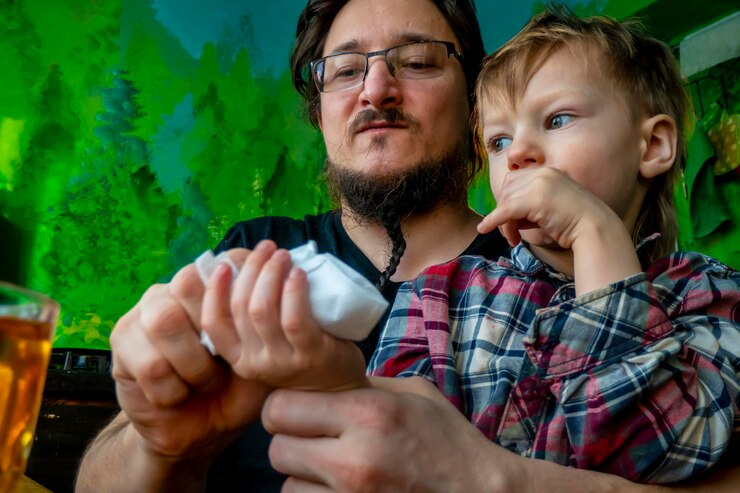Introduction
Fatherhood extends beyond biological ties. In many families, there are dedicated and loving father figures who play a significant role in children’s lives, providing guidance, support, and love. These non-biological dads, whether stepfathers, adoptive fathers, or father figures in other capacities, deserve recognition and appreciation for the profound impact they have on their children’s development. In this article, we celebrate these father figures and highlight the importance of honoring their contributions.
The Role of Non-Biological Dads
Non-biological dads play an invaluable role in shaping the lives of children. They provide emotional support, offer guidance, and serve as positive role models. These father figures often step into challenging roles, embracing the responsibilities of fatherhood with dedication and love.
Whether they enter a child’s life through remarriage or adoption, non-biological dads create a sense of stability and security. They establish strong bonds, fostering trust and a sense of belonging within the family unit. These relationships are built on love, commitment, and the shared experiences that form the foundation of a deep connection.
The Impact on Children
The presence of non-biological dads has a profound impact on children’s lives. They contribute to their emotional well-being, self-esteem, and overall development. These father figures offer guidance, encouragement, and a sense of direction, helping children navigate life’s challenges with confidence.
Non-biological dads provide a sense of stability and structure. They offer consistent support, love, and discipline, creating an environment where children can flourish. Their involvement helps shape children’s values, beliefs, and attitudes, providing them with a strong moral compass.
The bond between non-biological dads and their children also extends to the formation of identity. These father figures contribute to children’s understanding of family dynamics, relationships, and the importance of unconditional love. They instill values, traditions, and cultural heritage, enriching children’s sense of self and connection to their roots.
Expressing Gratitude and Recognition
It is essential to express gratitude and recognition for the role of non-biological dads in children’s lives. Here are some ways to honor and celebrate these father figures:
- Open Communication: Have open and honest conversations with the non-biological dad, expressing appreciation for their presence and acknowledging the impact they have on the family. Share specific examples of how they have positively influenced the children’s lives.
- Celebrate Special Days: Include non-biological dads in celebrations of Father’s Day, birthdays, and other family occasions. Recognize their role and express gratitude through thoughtful gestures, gifts, or heartfelt letters.
- Share Stories and Memories: Encourage children to share stories and memories that highlight the positive impact of their non-biological dads. Create a space for open dialogue and reflection, allowing children to express their love and appreciation.
- Public Acknowledgment: Utilize social media, family gatherings, or community events to publicly acknowledge the role of non-biological dads. Share stories, photos, or testimonials that recognize their unwavering dedication and love.
- Inclusion and Support: Ensure that non-biological dads are included in important decision-making processes regarding the children’s well-being and upbringing. Provide them with support, resources, and opportunities for personal growth as fathers.
Conclusion
Non-biological dads hold a special place in the hearts of their children. They embody the qualities of love, support, and dedication that are fundamental to fatherhood. As a society, it is crucial to celebrate and honor these father figures for their positive impact on children’s lives. By acknowledging their role and expressing gratitude, we can create a culture that recognizes and values the significant contributions of non-biological dads, fostering stronger families and brighter futures for all.










